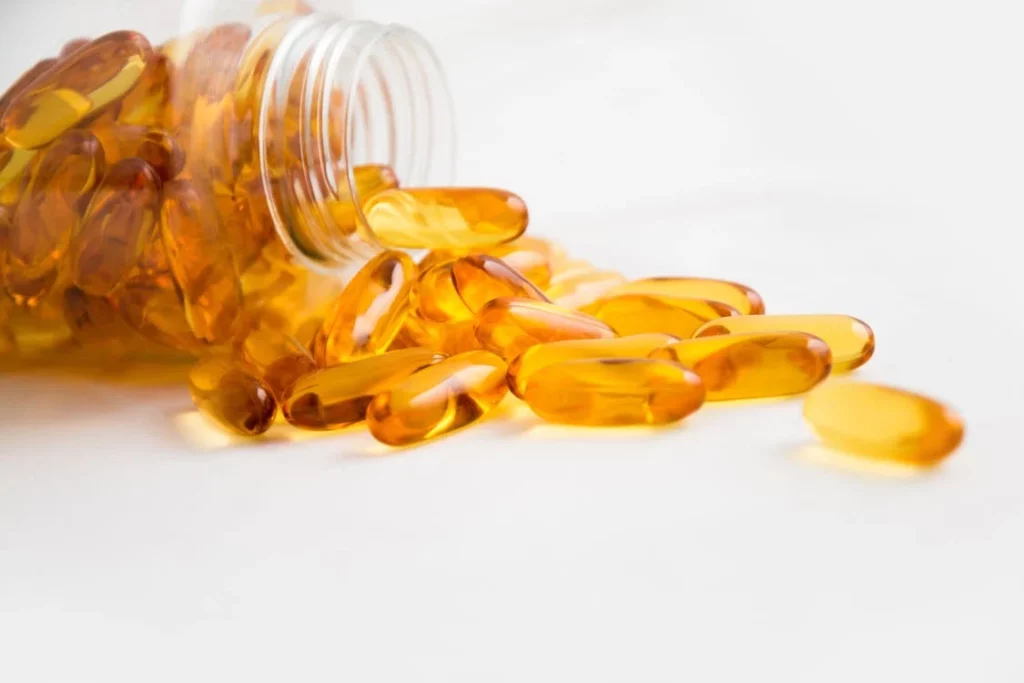
Dr. Lauren Edwards, a psychiatry resident in the Department of Psychiatry at the Department of Michigan is beginning to recommend that her patients take Omega-3 as part of their mental health care. This decision has been influenced by the surge of scientific research articles supporting the role for omega 3s in improving mental health. I attended Dr. Edwards’ Evidence Based Medicine Seminar titled “Fishing for a better mood: A look at the evidence for Omega-3 Fatty Acids.” After the lecture, I caught up with Dr. Edwards for an exclusive sit down interview to learn more about her views on the role of omega 3 in mental health.
HHR: What lead you to become more interested in nutrition in psychiatry?
Dr. LE: “I attended the American Psychiatric Association (APA) in 2015 and heard a presentation from Dr. Drew Ramsey, a psychiatrist and one of the authors of The Happiness Diet, which is when I became interested in the role that nutrition may play in mental health.”
HHR: What role does nutrition play in mental health?
Dr. LE: “Food is fuel for brain, and I think its importance in how we feel is often taken for granted. We eat multiple times every day, and everything we eat affects our body and our brain. When we change our diets to include more nutritious foods, we are engaging in a very low risk intervention that may lead to incredible gains for both our physical and mental health.”

HHR: In your talk, you presented overwhelming evidence for the role of Omega 3s for depression. Specifically, you noted that 13 randomized controlled trials of about a thousand patients with major depressive disorder (MDD) showed an overall beneficial effect of omega-3 polyunsaturated fats on depressive symptoms in MDD. Do you recommend that your patients with depression take Omega 3s?
Dr. LE: “Yes, the APA adopted the consensus recommendations of the American Heart Association for 1g/d of EPA + DHA in patients with MDD. Some studies are indicating that a larger dose of EPA seems to be better, at least 1g of EPA usually (often two over the counter capsules). The FDA says that up to 3 grams of EPA/DHA daily is considered safe. I also encourage more fish, nuts, and leafy greens in the diet. Pregnant women should also consider taking Omega-3s, including DHA, because it helps with fetal brain development. However, there is so much heterogeneity in the results of studies on Omega-3s, we have a long way to go before we can know exactly what Omega-3s are doing in our bodies and who they may be most helpful for.
HHR: Are there other types of patients that might do well with Omega-3s?
Dr. LE: “EPA is anti-inflammatory, so patient’s with acute, and particularly chronic inflammatory states may receive more benefit than the average person. Obesity has been determined to often involve a state of chronic inflammation, and a recent study found EPA to be very effective in treating their depression, to the point where it resolved with this intervention alone. We can postulate that people with other sorts of inflammation or oxidative stress, such as smoking or other diseases, may also have significant benefit from omega-3 supplementation.
HHR: Is there a downside to taking Omega 3s?
Dr. LE: “There is a potential threat of contamination with mercury, however usually the Fish Oil pills that you find in quality nutrition stores is purified. Usually side effects are gastrointestinal related (such as nausea, diarrhea, GERD, eructation). Fishy breath can also be a problem but this can be minimized by freezing the pills. I also recommend people take with a meal.”
*Happy Healthy Rested recommends that you always check with your doctor before starting any new supplements. Further questions? Contact me at dconroy@happyhealthyrested.com